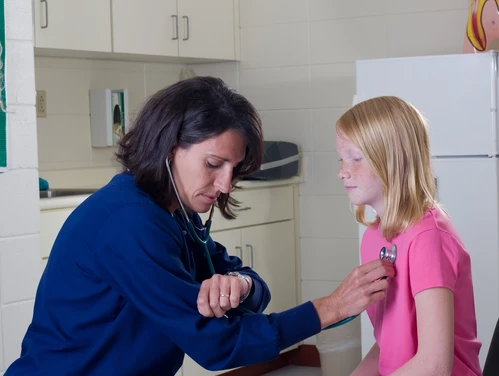Table of Contents
Content Information
Diarrhea is characterized by the frequency, volume, or liquidity of stool. Diarrhea can occur for a short time or be a long-lasting health-related issue. Some children live with chronic health conditions that cause recurrent diarrhea. Diarrhea can affect the student’s physical health, attendance, academic performance, and social and emotional well-being.
General actions if a child experiences diarrhea at school or in their program:
If diarrhea:
- Prevents the child from participating comfortably in activities.
- Results in an acute change in behavior: lethargy, lack of responsiveness, irritability, persistent crying, difficulty breathing, or a quickly spreading rash.
- Is accompanied by a fever:
- For an infant or child older than 2 months, a fever is a temperature that is above 101 degrees F [38 degrees C] by any method.
- For infants younger than 2 months of age, a fever is a temperature above 100.4 degrees F [38 degrees C] by any method.
- Communicate with the parents of the child.
Key points to remember:
- Wash your hands and wear gloves when assisting the child with hygiene tasks.
- Recognize the student’s needs for privacy.
- Provide easy access for the student to use the bathroom.
- Ensure the student washes their hands after using the bathroom or performing hygiene care.
- Double-bag any soiled clothes to be sent home with the student or the parents
- Ensure disinfection of surfaces that have been contaminated with stool by the instructions on the product label.
- Follow any additional steps required depending on the student's health needs.
- Document the date, time, care provided, communication with the student, school nurse, and any communication with the parents in the child’s student health record.
- Students experiencing the need for ongoing health services, related to chronic health conditions, that cause recurrent diarrhea will have an individualized health plan.
